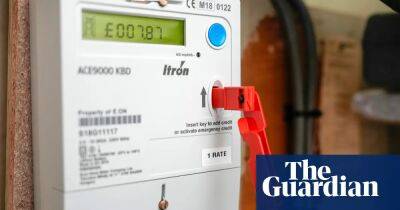I know the inhumanity of prepayment meters. Forget reform – they should be abolished
I t’s a January morning in Glasgow and I’m speaking in a virtual meeting with a collection of MPs and fuel poverty campaigners. It’s part of the new all-party parliamentary group for prepayment meter reform, chaired by the SNP’s Anne McLaughlin. In the next room my toddler is napping, so I speak more gently than I usually would. My screen has the background blurred because our kitchen is, frankly, a tip, and I don’t want our dirty dishes to distract from what I have to say.
On my laptop is a picture gallery of those attending, each of their faces drawn with real concern. The day before this meeting, the Times had published an undercover exposé on British Gas, whose third-party debt collection agency was revealed to be breaking into people’s homes, with warrants, to forcibly install prepayment energy meters – even when there were signs that vulnerable people lived there. The debt collectors, it was alleged, were incentivised with bonuses to do their ruthless work.
The news triggered a series of reactions – from the government, from the energy regulator Ofgem, and from the courts – which led last Friday to a pledge from energy companies to stop the forced installation of the meters in vulnerable people’s homes. The energy security secretary, Grant Shapps, said this was “only the beginning” of fixing the “abhorrent” practice, and has written to energy companies to insist they improve.
But here’s the missing detail: the rules already stated that the energy companies weren’t supposed to be doing this. “Some people will be able to sleep a little easier because of this news while others will struggle to sleep at all having had the sanctity of their homes violated by these enforced installations,” Anne McLaughlin told me. “The
Read more on theguardian.com


![Maker [MKR] heading towards key demand zone – Is a reversal likely? - ambcrypto.com - city Santiment](https://finance-news.co/storage/thumbs_400/img/2023/3/9/58964_lw3z.jpg)






![Calculating the odds of Optimism [OP] sliding down to $2 this week - ambcrypto.com](https://finance-news.co/storage/thumbs_400/img/2023/3/9/58952_x5ikp.jpg)




![Bitcoin [BTC]: What its social dominance stats tell us about its ‘king coin’ label - ambcrypto.com - city Santiment](https://finance-news.co/storage/thumbs_400/img/2023/3/9/58946_chp8.jpg)

